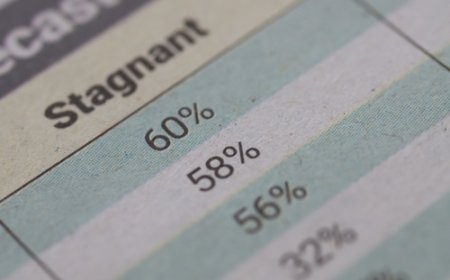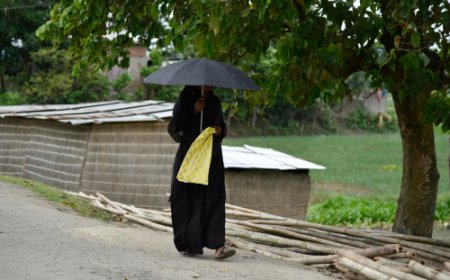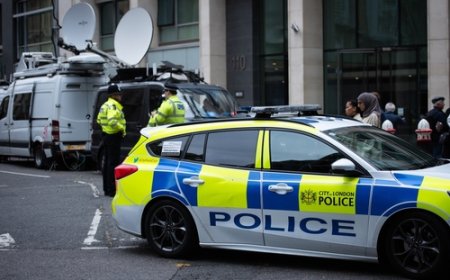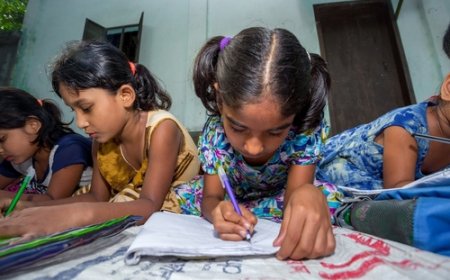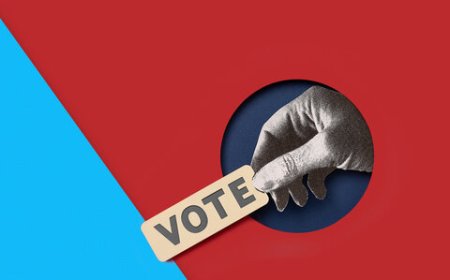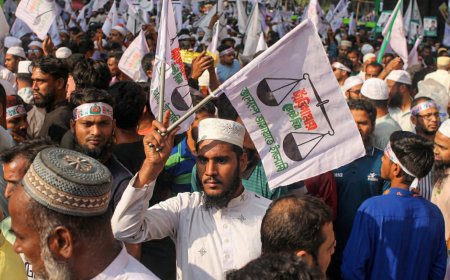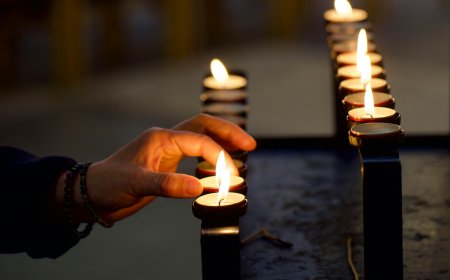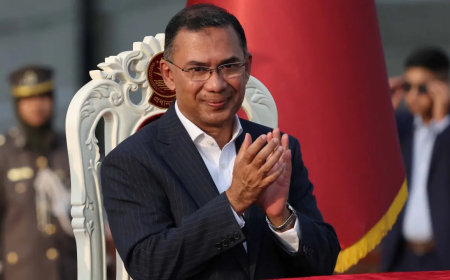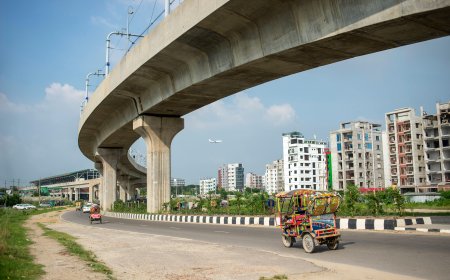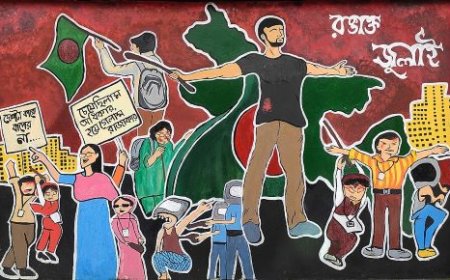What Do Young Bangladeshis Want?
Fully 62% feel positive and hopeful about Bangladesh’s future. This is the hope that gives Bangladesh a second chance. But hope, must be met with policy, leadership, and delivery. When young people stop trusting the system, they change it.

Bangladesh Youth Leadership Center’s Youth Matters Survey 2025 offers an unfiltered window into the minds of a generation living through a historic upheaval and transition as the country prepares for the 2026 national elections. Fully 89% of the youth who participated in this survey are registered voters and an overwhelming 97% plan to vote in the upcoming parliamentary election.
This level of political engagement from a demographic that makes up more than one-third of the population under 35 signifies a democratic awakening the nation cannot afford to ignore.
73% aspire for a free fair election while 50% are confident about the transparency and accountability of the upcoming election process under the interim government and 32% are not sure.
30% youth are undecided about whom to vote for. 19.6% favored Bangladesh Nationalist Party, 16.9% Bangladesh Jamaat-e-Islami, 9.5% Bangladesh Awami League, 3.6% National Citizen Party, 1.5% other Islamic parties, 0.7% other independent candidates, 0.4% Jatiya Party, 0.0% other leftist parties, 17.7% preferred not to say, and roughly 30% are yet to decide.
This fluidity indicates that the political compass still has room to shift. Party policies (42%), leadership qualities (31%), past performance (10%), family or community influence (8%) dominate the reasons for preference, while election promise (3.28%) and reputation and strength of local candidate (3.36%) seem to matter less, raising the question of the lack of values in politics.
Regardless of political preference, majority demand eradicating corruption (67%), unemployment (56%), law and order (43%), safety, security dignity (24%), inflation economic crisis (23.5%) as issues which must be tackled. 63% of young people feel safer expressing opinion, giving a message that youth demand space, dignity, and voice in politics. To strengthen good governance, youth demands an independent judiciary (54%), dependable anti-corruption bodies (44%), equity and equality (24%) as major determinants.
Interestingly, 42% prefer salaried jobs, while 39% prefer entrepreneurship and 19% are unsure which career to pursue.
Encouragingly, 76% of those who seek salaried employment, want opportunities in the country, only 24% abroad.
For a meaningful education, majority want improved teacher quality (67%), and skills for TVET (46%), ICT AI literacy (40%), and creative analytical thinking (18%).
Soft skills, hardly understood by most and dismissed as secondary by many are viewed as indispensable: 74% consider them ‘very important’ for academic and professional excellence, with time-management (48%), teamwork (44%), problem-solving (42%) and communication (32.5%) ranking highest.
It’s evident that this generation demands relevance, not rote learning; skills that nurture agility, competitiveness and productivity, rather than only certification. 80.7% youth depend more on digital platforms (68.2% Facebook, 8.9% YouTube), therefore such portals for information and learning must be made dependable.
Youth opined that student politics has a negative (53%) impact on fair and functioning educational institutions, highlighting the influence of politics in hampering the academic environment (48%), violence among student groups (24%), insecurity among general students (17%), misuse of power and resources (11%) as attributing factors. Turning politics into a constructive force for academic pursuit is required.
Strong inter-community relationships (46%), conducive laws and policies (27.5%), proactive measures taken by interim government (20%) among other reasons contributes to youth believing that communal harmony persists (65%). A gradually polarized society (42%), absence of strong community leadership (31%), the influence of national level politics (27%), religious extremism (24.5%) and increase in bigotry and intolerance (18%) caused 23.5% to hold an opposite opinion.
In general, 76% youth believe women do not feel safe in Bangladesh, the key reasons being abuse (55%), weak law enforcement and (40%), harassment in public spaces (27%), domestic violence (17%), child marriage (12%), cyberbullying (11%). These indicators reflect structural and cultural fractures that require a whole-of-society approach for strengthened institutions, community leadership, and sustained political will.
Despite all the challenges identifies, 82% wish to remain in the country. Of the 18% who wish to migrate, they site concern over the economic (58%) and political conditions (44.5%), insufficient job prospects matched with skills and qualifications (33.5%), concerns over personal safety and security (28%) and social condition (26%), limited access to high-quality education and training (20%), innovation and entrepreneurship (14%). But 68% would return if these problems are addressed. So, the desire to leave is the cost of a system that has not kept pace with youth expectations.
Fully 62% feel positive and hopeful about Bangladesh’s future. This is the hope that keeps young people engaged in civic life and gives Bangladesh a second chance. But hope, must be met with policy, leadership, and delivery. If political parties, the interim government, and future elected leaders want to secure the trust of this generation, they must act immediately on three fronts:
- Restore political accountability through free, fair and transparent elections; freedom of speech and digital rights; and strong anti-corruption institutions.
- Rebuild the social contract by transforming education to prioritize real-world skills; engage youth in decision-making; address gender-based violence and polarization.
- Reimagine economic opportunity by investing in innovations, digital skills, entrepreneurship, modern TVET; and integrate soft-skills into the national curriculum. Bangladesh’s youth are demanding competence, integrity, and vision from us.
If we dismiss the largest demographic force shaping the country’s future, the consequences will be political instability, economic stagnation, and social fragmentation. If we respond with urgency and honesty, then we have the chance to enter a new democratic era driven by the energy, talent, and optimism of our young citizens.
When young people stop trusting the system, they change it.
Click the link to get the full survey from the article.
Tahsinah Ahmed is the Executive Director of the Bangladesh Youth Leadership Center (BYLC).
What's Your Reaction?









